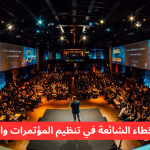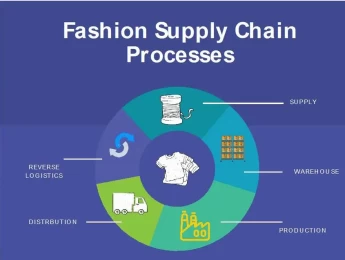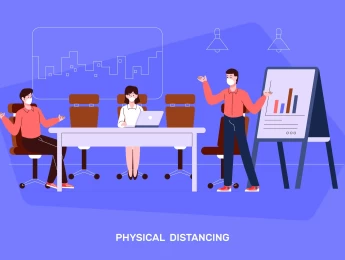Events and conferences are a vital part of the hospitality industry, offering significant opportunities for revenue, brand positioning, and guest engagement. From corporate meetings and incentive trips to destination weddings and large-scale exhibitions, successful event management requires precision, creativity, and operational discipline.
This course equips hospitality professionals with the skills and tools to plan, organize, and deliver memorable events and conferences. Participants will explore the full event cycle—from client consultation and budgeting to logistics coordination and post-event evaluation. Through real-world scenarios and hospitality-specific insights, this course prepares learners to handle events of any scale with confidence and efficiency.
By the end of this course, participants will be able to:
- Understand the structure and phases of event and conference planning.
- Develop event concepts aligned with client and brand objectives.
- Coordinate operational logistics for various types of events.
- Manage venues, vendors, and support teams effectively.
- Handle event budgets, pricing, and revenue generation strategies.
- Apply risk management and contingency planning techniques.
- Deliver seamless guest experiences during live events.
- Evaluate event outcomes and apply lessons to future planning.
This course is ideal for:
- Event and conference coordinators in hospitality venues.
- Sales and banquet managers in hotels or resorts.
- Operations managers handling events and meetings.
- Marketing and guest experience teams.
- Hospitality professionals entering the MICE (Meetings, Incentives, Conferences, Exhibitions) sector.
- Venue and convention center managers.
- Hospitality entrepreneurs offering event services.
The course combines presentations, interactive case studies, simulation exercises, and event planning templates. Participants will work on real-life event planning scenarios, budget development, site layout analysis, and stakeholder communication strategies. The hands-on, collaborative approach allows for immediate application of concepts in hospitality environments.
Day 5 of each course is reserved for a Q&A session, which may occur off-site. For 10-day courses, this also applies to day 10
Section 1: Foundations of Event and Conference Planning
- Types of events and their unique requirements in hospitality.
- The role of events in hotel positioning and revenue strategy.
- Event planning lifecycle: from idea to execution.
- Identifying client objectives and guest expectations.
- Developing event concepts that align with brand identity.
- Creating project timelines and action plans.
- Roles and responsibilities of the event team.
Section 2: Venue and Logistics Management
- Selecting the right venue and configuring event spaces.
- Seating arrangements, stage setup, and flow of movement.
- Audio-visual, lighting, and technological requirements.
- Coordinating transportation, accommodation, and on-site signage.
- Managing vendor relations (catering, entertainment, décor).
- Logistics for back-of-house operations during events..
- Ensuring guest accessibility, safety, and comfort
Section 3: Budgeting, Pricing, and Revenue Management
- Building a detailed event budget.
- Cost estimation for logistics, F&B, décor, staffing, and tech.
- Setting event pricing models for different markets.
- Maximizing profit margins through upselling and packages.
- Sponsorship acquisition and monetization strategies.
- Managing contracts and payment schedules.
- Tracking expenses and financial reporting.
Section 4: Guest Experience and Event Execution
- Designing guest journey and service touchpoints.
- Pre-event communication, registration, and welcome experience.
- Managing live event flow and time-sensitive tasks.
- Handling guest concerns and last-minute changes.
- Creating personalized and memorable moments.
- Leveraging staff to deliver hospitality excellence.
- Collecting guest feedback during and after the event.
Section 5: Risk Management and Post-Event Evaluation
- Identifying potential risks (weather, cancellations, safety).
- Developing contingency plans and crisis protocols.
- Legal considerations and insurance in event planning.
- Evaluating event success using KPIs and guest surveys.
- Conducting post-event debriefs with teams and clients.
- Documenting best practices for continuous improvement.
- Building long-term client relationships through review follow-ups.
Upon successful completion of this training course, delegates will be awarded a Holistique Training Certificate of Completion. For those who attend and complete the online training course, a Holistique Training e-Certificate will be provided.
Holistique Training Certificates are accredited by the British Accreditation Council (BAC) and The CPD Certification Service (CPD), and are certified under ISO 9001, ISO 21001, and ISO 29993 standards.
CPD credits for this course are granted by our Certificates and will be reflected on the Holistique Training Certificate of Completion. In accordance with the standards of The CPD Certification Service, one CPD credit is awarded per hour of course attendance. A maximum of 50 CPD credits can be claimed for any single course we currently offer.
- Course Code IND15 - 140
- Course Format Classroom, Online,
- Duration 5 days









